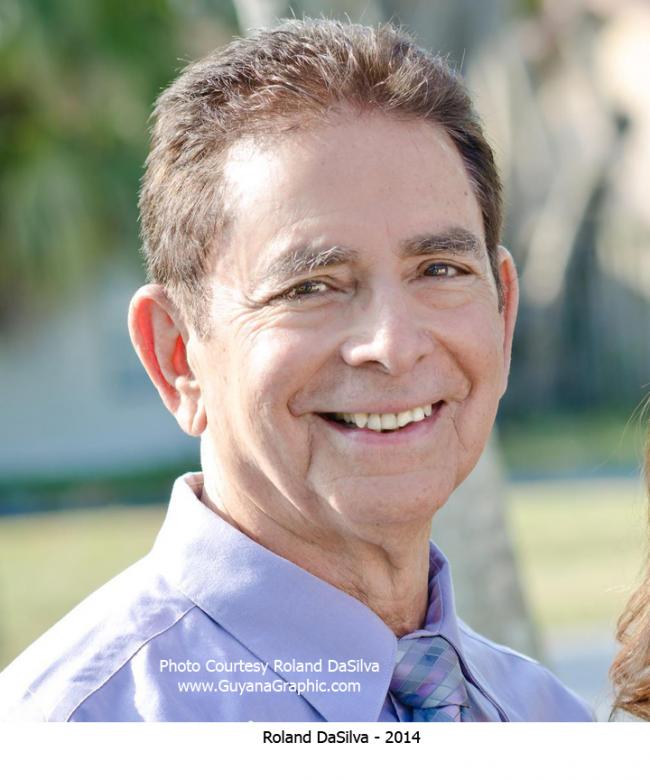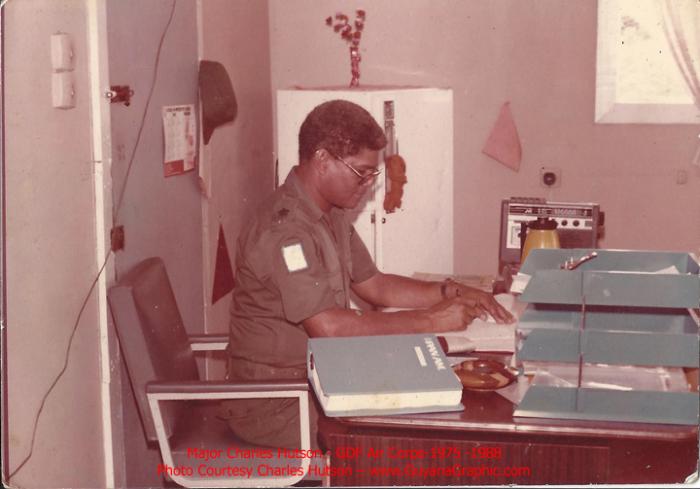The forced disclosure of the Prime Minister that on the eve of demitting office in November 2011, former President Jagdeo issued ten radio broadcast licences in his discretion, brings to mind the concept of a ‘perfect storm’. This refers to a natural phenomenon whereby a series of aggravating circumstances combine to produce one monster event.
The forced disclosure of the Prime Minister that on the eve of demitting office in November 2011, former President Jagdeo issued ten radio broadcast licences in his discretion, brings to mind the concept of a ‘perfect storm’. This refers to a natural phenomenon whereby a series of aggravating circumstances combine to produce one monster event. Jagdeo’s decision to issue those licences was a perfect storm of lawlessness, for it embodied simultaneously a series of unconstitutional and otherwise unlawful acts, all of which are integral aspects of PPP-style governance. These include their intolerance of criticism, their serial disregard for the law, the nepotism that overshadows employment decisions and government spending, and a shameless policy of racial discrimination targeted at the country’s Afro-descendants. Issuing those licences must have been among the last of Jagdeo’s official acts, and it was wholly in keeping with a tenure that caused Nadira Jagan to lament, shortly after Jagdeo left office, that her parents must be turning in their graves.
The history of broadcast licensing in Guyana, culminating in Jagdeo’s secret awards to a chosen few, is a prime example of the PPP’s totalitarian disregard for fundamental rights and democracy. For almost two decades they maintained a monopoly of the airwaves, only permitting state-owned stations to broadcast. Applications for licences were simply ignored, and in 2009 Valmikki Singh, Head of the National Frequency Management Unit, revealed in court that there were 60 pending applications. Refusing or ignoring applications for licences to broadcast has consistently been held by courts in the commonwealth, including our own Court of Appeal, to amount to a violation of the right to free expression. Worse, when Jagdeo chose to act in November 2011, the majority of the beneficiaries were his close friends and PPP supporters. By licensing party stalwarts, and refusing the applications of otherwise affiliated applicants, the PPP thus ensured the continuation of its stranglehold of the airwaves, and with that extinguished any hope of democratic governance under their rule.
The PPP has demonstrated a shrewd understanding of the power of an independent media, for they have done their best to stamp it out. Additionally, they have consistently displayed an unwillingness to allow viewpoints other than their own. Whereas under President Hoyte Stabroek News came into being, Jagdeo attempted to cripple both Stabroek News and Kaieteur News by withdrawing state-funded advertisements from them. Individuals who dare to criticise the regime are pursued with unrestrained vindictiveness. In the past this has resulted in the jailing of a teenager for harmlessly expressing his contempt for Jagdeo, the dismissal of Freddie Kissoon from UG, and an embargo on airing anti-government calypsos. During his tenure Jagdeo banned a journalist from entering the Office of the President, suspended the operations of television stations, and even wrote to the World Bank, CARICOM and foreign universities to demand that critics be fired. Like a grotesque Orwellian fictionalised world, or Eastern Europe before 1989, in Guyana under the PPP open dissent carries a high price. It was in keeping with this dictatorial behaviour that the PPP refused to issue radio broadcast licences for two decades.
The fact that Jagdeo seized for himself the power to award licences is itself an indication of his contempt for the rule of law. The most conservative definitions of this concept are that it eschews wide, discretionary powers, that all are subject to the law, and that reasonableness and fairness prevail against the arbitrary exercise of power. Jagdeo’s awards savagely undermine all of these elements. Since legislation governing the issue of radio licences was in existence by November 2011, a head of state committed to the rule of law ought to have ensured that the Act was brought into force and the Broadcasting Authority constituted, instead of dealing with applications in his personal discretion.
Jagdeo’s decision to issue licences in November 2011 was compounded by the fact that he was then about to demit office. In functioning democracies it is not customary for departing officials to make major policy decisions, particularly if doing so would be to foist significant financial burdens on their successors. More troubling, having refused for so many years to open up the spectrum, what was the justification for not waiting on the legislation to be brought into effect? Jagdeo’s haste to issue licences on the eve of his departure raises grave suspicion as to his motives for so doing.
A clue as to the need for haste is possibly that under the legislation, systems and procedures are substituted for personal discretion. The Act creates a Broadcasting Authority (the GNBA) which is tasked with determining all applications, and in so doing the GNBA must consider a wide range of matters. These include technical standards, proposed programming, the demands of the market, and even the views of stakeholders ventilated at public hearings in the location of an applicant’s proposed operations. All these factors, the law mandates, must be considered against the national broadcasting policy. So it must be asked, did Jagdeo take any of these factors into account when he bypassed the legislation? What criteria guided his decision? How did applicants satisfy him of their technical competence? Did public consultations precede his decision, as contemplated under the Act? In other words, did Jagdeo heed the spirit of the law, even though it had not yet been brought into force?
Despite Jagdeo’s departure, contempt for the rule of law is as strong as ever within the PPP, for last February approval was granted to China Central TV to broadcast here, without the involvement of the GNBA which by then had been finally set up. When questioned about this decision, Roger Luncheon crudely boasted that as head of the Presidential Secretariat, he could “instruct” GNBA to issue a licence (SN, 16/2/2013). The rule of law means that where the law sets out a procedure to be followed, no official – however high – can bypass those procedures or instruct that the law be bypassed to benefit a favoured applicant. Not only must law take precedence over arbitrary discretion, but laws must apply to all persons equally. That Luncheon could so insouciantly admit that the HPS in Guyana has the power to instruct a statutory authority to break the law is a frightening indication of how untouchable the PPP regards itself, for they have abandoned even the pretence of democratic governance.
In addition to the highly irregular procedures surrounding the awards, the actual beneficiaries of Jagdeo’s discretion unmask the levels of nepotism under the PPP administration. Of the 21 frequencies doled out in secrecy – 15 were given to just three persons in the bowels of the PPP: Bobby Ramroop, Dharamkumar Seeraj, and Omkar Lochan.
Over the last decade, millions of taxpayers’ dollars have been channelled to Bobby Ramroop through various schemes: the single-sourcing of drugs in breach of the Public Procurement Act 2003, payment in advance for drugs against normal business protocols (in other words, the taxpayers financed Ramroop’s buying and selling operations), financing for the Berbice river bridge (whereby he loaned money for the bridge at 9-11% interest, all tax-free), and illegal tax free concessions for his business group which were hastily legalised retroactively after being exposed. This radio licence is just another in a string of benefits that Jagdeo has heaped upon his close friend.
Another beneficiary, Dharamkumar Seeraj, is the publisher of the PPP newspaper and a PPP Member of Parliament. A third, Omkar Lochan, is a senior public servant who is also the spokesperson for a company named Telecor, of which one Director is Jagdeo’s niece and another is Robert Persaud’s sister. A host of questions swirl around the award to Telecor/Omkar Lochan. Have we abandoned in Guyana all pretence at having an independent and professional civil service? How did a public servant acquire the means to satisfy Jagdeo that he is financially a fit and proper person to run the operations of the station? Are Lochan’s official responsibilities going to take second fiddle to running Telecor’s operations, or is he simply a front for someone else?
The spectrum is a national resource – limited, highly lucrative, and the patrimony of all Guyanese. Broadcast licences should therefore have been awarded equitably and with the aim of deriving the maximum financial returns. Instead, what occurred here was that the lion’s share of the spectrum pie was gobbled up by Jagdeo’s family and close friends.
Finally, the racial bias in the licences awarded by Jagdeo is unmistakable. While the majority of frequencies were awarded to East Indians, non-Indian Guyanese – including those like Tony Vieira and Enrico Woolford who are household names in journalism – could not even get a response to their applications. Consider also how the PPP refused to allow any private radio station to operate in Linden, a primarily Afro-Guyanese town, for more than two decades.
This is all part of the ethnic triumphalism of the PPP, whereby East Indians are the prime beneficiaries of national resources and public office. Class is at work here as well. Working and middle class East Indians are favoured only to the extent needed to try to secure their loyalty; the real plan is an obscene consolidation of economic and political control in the hands of a small cabal. Government’s largest spending is funnelled to that cabal – for example, in the area of construction works, the bulk goes to Tiwari, who was able to boast on his company’s website that it is in “complete control of sea defence and boulder works”. For buying and selling pharmaceutical drugs, as pointed out, millions have been lavished on Ramroop. The heads of almost every major public office are all of Indian descent – the long list includes the revenue collection, elections commission, forestry, lands and surveys, energy, labour, drainage and irrigation, health, CANU, television, civil aviation. Guyanese of Indian descent have been installed as the heads of all major public commercial entities (like Guysuco and NICIL) and key public entities, including the Public Service, Police Service, Judicial Services, Teaching Services, Police Complaints Authority, Public Utilities Commission… and the list goes on and on ad nauseam. Not to forget, of course, the newly established but apparently toothless GNBA.
In a country that is multi-racial – in primary school we are taught that Guyana has six races – it boggles the mind that Guyanese of one race alone occupy these key positions. One would think that such blatant favouritism is indefensible, but when it emerged in court in 2011 that every single Ambassador then was of Indian descent, Roger Luncheon – a token Black in the inner circle – stated in court that Blacks are not qualified to hold the post of Ambassador.
Incredibly, in response to the justified public outrage over these licences and calls to revoke them, Bibi Shadick – head of GNBA – stated that she would not be “bullied”. What an unfortunate response. A thoughtful chairperson would have considered the dictates of the Broadcasting Act, which articulates a broadcasting policy for Guyana that “safeguards ethnic diversity”, “reflects the multi-racial nature of Guyanese society”, and “promotes shared national values” and “impartiality”. He or she might have considered the furtive nature of Jagdeo’s awards along with their discriminatory and nepotistic features, and instead of pugnacious rhetoric at least conceded that there were irregularities in the process. But Shadick’s reaction demonstrates why it is important for the PPP to install loyal followers of the status quo to every major board and commission.
In nature, a perfect storm is a meteorological phenomenon of terrible but fleeting consequences. In Guyana, the PPP’s perfect storm of governance has been an unending succession of unnatural, destructive forces: rampant corruption, racial discrimination, constitutional violations, and disregard for the rule of law. It is the ordinary taxpayer who has been bullied by the PPP, not the other way around.
About the author: Dr. Arif Bulkan teaches constitutional law and Caribbean human rights law at the St. Augustine campus of the University of the West Indies





